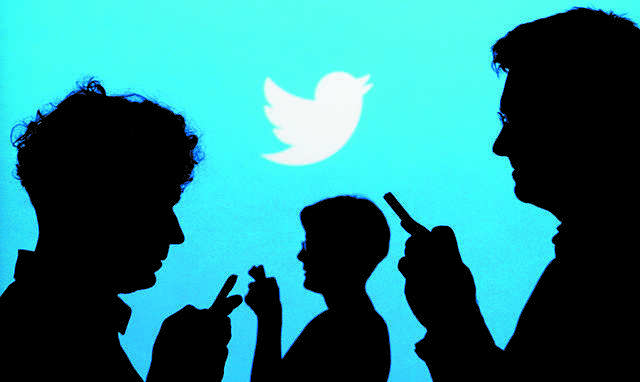
Rules is what’s important here and while Twitter may not be consistent in implementing them, those rules need to be followed. So what are these rules and what are the things that can get your account suspended? We give a lowdown on what you shouldn’t do if you want to keep your Twitter account active.
Twitter divides its rules under three categories: Safety, Privacy and Authenticity. Here are the things that fall under each of those three categories:
What comes under Safety
“Our rules are to ensure all people can participate in the public conversation freely and safely,” says Twitter. Under safety, these are the main points that can get accounts suspended:
Glorifying violence, terrorism and violent extremism: You cannot glorify violence or you may not threaten violence against an individual or a group of people. Do that and chances are your account could be suspended. Further, you may not threaten or promote terrorism or violent extremism. Users can’t affiliate with and promote the illicit activities of a terrorist organisation or violent extremist group.
Child sexual exploitation: This, according to Twitter, is one of the most serious violations of its rules. This may include media, text, illustrated, or computer-generated images. Regardless of the intent, viewing, sharing, or linking to child sexual exploitation material contributes to the re-victimisation of the depicted children, Twitter rules clearly state.
Abuse and harassment of other users: Twitter claims — or at least the rules state that it does not tolerate content that wishes, hopes, promotes, incites, or expresses a desire for death, serious bodily harm or serious disease against an individual or group of people. For example, you can’t say “If this group of protesters don’t shut up, they deserve to be shot.” This would lead to your account being suspended.
Hateful conduct, racism, and more: Users should not use hateful images or symbols in their profile image or profile header as it could lead to the suspension of their accounts. Further, Twitter prohibits content that wishes, hopes, promotes, incites, or expresses a desire for death, serious bodily harm, or serious disease against an entire protected category and/or individuals who may be members of that category
Encouraging suicide or self harm: Users can’t promote, or otherwise encourage, suicide or self-harm. Twitter defines promotion and encouragement to include statements such as “the most effective”, “the easiest”, “the best”, “the most successful”, “you should”, “why don’t you”.
Posting sensitive content like graphic violence and adult content: Twitter rules say that users may not post media that is excessively gory or share violent or adult content within live video or in profile or header images. Media depicting sexual violence and/or assault is also not permitted. Graphic violence is any media that depicts death, violence, medical procedures, or serious physical injury in graphic detail. Adult content, on the other hand, is any consensually produced and distributed media that is pornographic or intended to cause sexual arousal, according to Twitter rules.
Selling illegal goods and services: Users are not allowed to sell weapons, drugs, products made from endangered or protected species, among other prohibited goods.
What comes under Privacy
Sharing non-consensual nudity and other such content: Users can’t post or share explicit images or videos that were taken, appear to have been taken or that were shared without the consent of the people involved. This could hidden camera content featuring nudity, partial nudity, and/or sexual acts. Or even images or videos that superimpose or otherwise digitally manipulate an individual’s face onto another person’s nude body.

Other people’s private information: Without the permission of any user, people can’t share home address, contact information, including non-public personal phone numbers or email addresses. Further, medical records and financial account information, including bank account and credit card details also cannot be shared.
What comes under Authenticity
Spam and manipulation of Twitter: Commercially-motivated spam is when someone uses Twitter to drive traffic or attention from a conversation on Twitter to accounts, websites, products, services, or initiatives. Further, users can’t do inauthentic engagements, that attempt to make accounts or content appear more popular or active than they are.
Interfering with elections and more: Twitter says that the platform cannot be used for the purpose of manipulating or interfering in elections or other civic processes. This includes posting or sharing content that may suppress participation or mislead people about when, where, or how to participate in an election or any other civic process. For example, users can’t say that you can vote by Tweet, text message, email, or phone call in jurisdictions where these are not a possibility.
Impersonating other accounts: Twitter accounts that pose as another person, brand, or organisation in a confusing or deceptive manner may be permanently suspended under Twitter’s impersonation policy. However, an account will not be suspended if the user shares your name but has no other commonalities, or the profile clearly states it is not affiliated with or connected to any similarly-named individuals or brands.

Fake or manipulated media: Twitter did this famously with former US president Donald Trump when many of his tweets were labelled under “manipulated media”. If an account posts content that has been substantially edited in a manner that fundamentally alters its composition, sequence, timing, or framing, then an account can be suspended.
Violation of copyrights and trademarks: Twitter can suspend accounts if users have violated others’ intellectual property rights, including copyright and trademark.
Leave a Reply